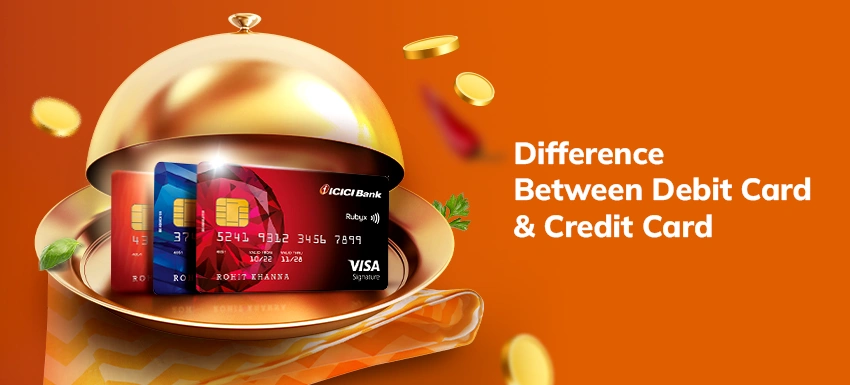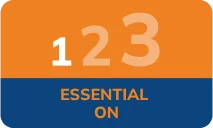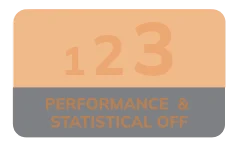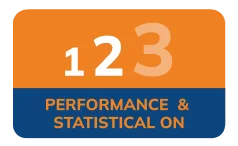THE
ORANGE
HUB
Difference Between Debit Card And Credit Card

Debit Cards and Credit Cards are two of the most commonly used payment instruments in India. Despite their similarities in appearance and usage, they function quite differently. Both have unique features, benefits and reasons for usage.
Understanding the difference between Debit Cards and Credit Cards is crucial for managing your finances effectively. So let us delve into the key features, advantages and potential drawbacks of both Card types in this blog post.
What is a Debit Card?
A Debit Card is linked directly to your bank account and allows you to spend the money that you currently have in your account. When you use a Debit Card for a purchase, the amount is deducted immediately from your bank account. Debit Cards are typically issued by your bank when you open a Savings or Current Account.
Key features of Debit Cards
Immediate Deduction: Funds are instantly withdrawn from your bank account at the point of sale, e.g., a store, fuel station, website etc.
No Interest Charges: Since you are using your own money, there is no interest charged on transactions
ATM Access: Debit Cards can be used to withdraw cash from ATMs
Spending Limit: Your spending limit is the amount in your bank account.
Advantages of Debit Cards
Budget friendly: Help manage your budget, as you can only spend what you have
Ease of Use: Convenient for everyday transactions and ATM withdrawals.
Drawbacks of Debit Cards
Although there are multiple advantages of using a Debit Card, there are certain points to be cautious about. Here are a few things you need to keep in mind:
Limited Fraud Protection: Fraud protection for Debit Cards is generally less robust than Credit Cards
Overdraft Fees: If you spend more than your account balance, you might incur overdraft fees
No Credit Building: Using a Debit Card does not help build your credit history or improve your credit score.
What is a Credit Card?
A Credit Card allows you to borrow money up to a certain limit from the Card issuer, to make purchases. You need to repay the borrowed amount to the issuer at the end of your billing period. If you do not pay the full balance by the due date, you will incur interest charges and might incur other charges too.
Key features of Credit Cards
Credit Limit: This is the maximum amount you can borrow, determined by the Card issuer based on your creditworthiness
Interest Charges: Interest is charged on the due amount if not paid in full by the due date
Credit Score Impact: Responsible usage of a Credit Card can help build and improve your credit score. Misuse can negatively impact it
Rewards and Benefits: Many Credit Cards offer rewards such as cashback, reward points, travel points and other perks.
Advantages of Credit Cards
Fraud Protection: Stronger consumer protection against fraud and unauthorised transactions
Credit Building: Credit Cards helps build your credit history and can improve your credit score if used responsibly
Rewards: Earn rewards such as cashback, reward points, travel points and discounts
Emergency Funds: Provide a source of funds in emergencies when you may not have adequate funds in your bank account.
Drawbacks of Credit Cards
Interest Charges: High interest rates can lead to significant debt if the amount due is not paid on time
Overspending Risk: The ability to spend more money than what you currently have can lead to overspending and financial mismanagement
Impact on Credit Score: Late payments and high unpaid balances can negatively affect your credit score.
Debit Cards vs. Credit Cards- A Comparison
Debit Cards and Credit Cards are useful financial tools. One may choose either, depending on one’s requirements. Here are the key differences between Credit Cards and Debit Cards.
1. Source of Funds
Debit Card: Uses money directly from your bank account
Credit Card: Borrows amount from the Card issuer, up to a predetermined limit.
2. Spending Limit
Debit Card: Limited to the available balance in your bank account
Credit Card: Limited to the credit limit set by the Card issuer
3. Interest and Fees
Debit Card: No interest charges on non-EMI purchases, but potential overdraft fees
Credit Card: Interest charges have to be paid if the due amount is not paid fully and in time. Late payment charges might also be applied.
4. Impact on Credit Score
Debit Card: Does not affect your credit score
Credit Card: Can help build or erode your credit score, based on usage.
5. Rewards and Benefits
Debit Card: There are many offers on online purchases, in-store shopping, dining, travel and more
Credit Card: Has perks like offers, reward points, travel points, cashback and more.
6. Fraud Protection
Debit Card: Limited fraud protection; might take longer to resolve disputes
Credit Card: Enhanced fraud protection through quicker resolution. Less liability for unauthorised transactions.
When Is a Debit Card Used?
Everyday expenses: Debit Cards are used extensively for day-to-day activities
ATM Withdrawals: A Debit Card is used to withdraw cash from ATMs
Avoiding Debt: Debit Cards help avoid the accumulation of debt since you are spending your own money, not borrowing it.
When Is a Credit Card Used?
Large Purchases: Useful for expensive purchases that you may want to pay off over time
Building Credit: Credit Cards are often used to build credit history and improve your credit score
Earning Rewards: Useful for perks like cashback, reward points, travel points and other benefits
Emergency Funds: Provides a financial cushion in emergencies.
Conclusion
Both Debit Cards and Credit Cards have their distinct advantages and disadvantages. The choice between the two depends on your financial habits, needs and goals. Credit Cards offer the benefits of building credit, earning rewards and having a financial backup in emergencies, whereas Debit Cards can help you stay within your budget and avoid falling into a debt trap.
Understanding the difference between a Debit Card and a Credit Card can help you decide which Card to use, effectively and responsibly. By leveraging the strengths of both, you can enjoy the convenience and financial benefits they offer while avoiding the pitfalls associated with misuse.









